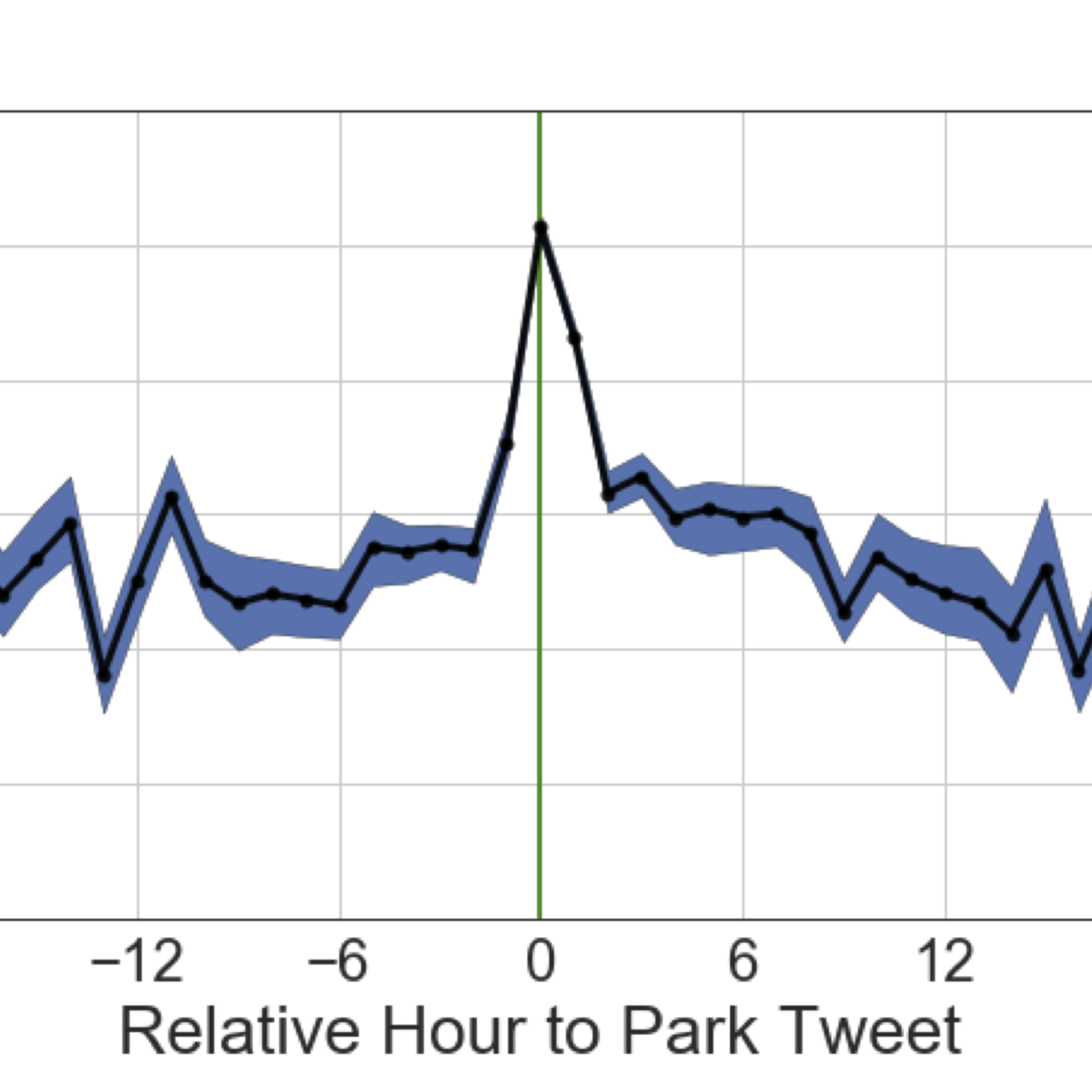Visitors to urban greenspace have higher sentiment and lower negativity on Twitter
A. J. Schwartz, P. S. Dodds, J. P. M. O'Neil-Dunne, C. M. Danforth, and T. H. Ricketts
People and Nature, 1, 476–485, 2019

Times cited: 122
Abstract:
With more people living in cities, we are witnessing a decline in exposure to nature. A growing body of research has demonstrated an association between nature contact and improved mood. Here, we used Twitter and the Hedonometer, a word analysis tool, to investigate how sentiment, or the estimated happiness of the words people write, varied before, during, and after visits to San Francisco's urban park system. We found that sentiment was substantially higher during park visits and remained elevated for several hours following the visit. Leveraging differences in vegetative cover across park types, we explored how different types of outdoor public spaces may contribute to subjective well-being. Tweets during visits to Regional Parks, which are greener and have greater vegetative cover, exhibited larger increases in sentiment than tweets during visits to Civic Plazas and Squares. Finally, we analyzed word frequencies to explore several mechanisms theorized to link nature exposure with mental and cognitive benefits. Negation words such as 'no', 'not', and 'don't' decreased in frequency during visits to urban parks. These results can be used by urban planners and public health officials to better target nature contact recommendations for growing urban populations.
- This is the default HTML.
- You can replace it with your own.
- Include your own code without the HTML, Head, or Body tags.
BibTeX:
@article{schwartz2019a,
title = {Visitors to urban greenspace have higher sentiment
and lower negativity on Twitter},
author = {Schwartz, Aaron J and Dodds, Peter Sheridan and
O'Neil-Dunne, Jarlath PM and Danforth, Christopher M
and Ricketts, Taylor H},
journal = {People and Nature},
volume = {1},
number = {4},
pages = {476–485},
year = {2019},
publisher = {Wiley Online Library}
}